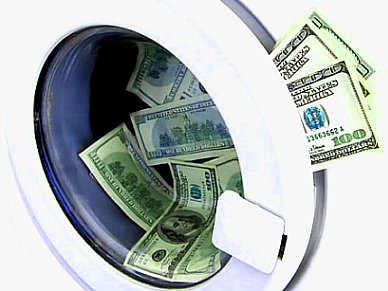Accredited InvestorsAltcoinAnatoli UnitskyAnti-Money Laundering (AML) In CryptoAPIArbitrageArtCoin TokenArticle DirectoryASICAuction Terminology GlossaryBasics of Stock Market InvestingBear MarketBest Crypto Payment Provider In the WorldBitcoinBlockchainBlockchain ConfirmationBlockchain Consensus MechanismBlockchain ForkBlockchain GlossaryBored Ape Yacht ClubBuild a Business That OutperformsBull MarketBuying SkyWay SharesByzantine Fault Tolerance (BFT) ExplainedCasascius CoinCentral Bank Digital Currency (CBDC)Centralized Crypto ExchangeCoinCoinsetCold WalletCollateralCommodity Futures Trading Commission (CFTC)Cross-Chain TechnologyCRUCrypto ExchangeCrypto GlossaryCrypto JokesCrypto Terms to KnowCrypto TickerCryptocurrencyCryptographyCryptojackingCryptounit BlockchainCryptounit GlossaryCryptounit ProgramdApp (Decentralized Application)Dead CoinDecentralized Exchange (DEX)Decentralized Finance (DeFi)Difference Between Bitcoin and EthereumDifferent Ways of Investing MoneyDigital CurrencyDistributed LedgerDo Your Own Research (DYOR)Dollar Cost Averaging (DCA)Dow Jones Industrial Average (DJIA)EncryptionERC-20ERC-721EthereumEvoScentFear Of Missing Out (FOMO)Fear, Uncertainty and Doubt (FUD)Fiat MoneyFNT Fintech CompanyGenesis BlockGlobal Unit PayGlossary of Banking TermsGlossary of Business TermsGlossary of Financial TermsHalvingHODLHot WalletHow Do I Start InvestingHow Rich is Satoshi Nakamoto?How to Create a BlockchainHow to Find Private InvestorsHow to Get Into FintechHow to Program Smart ContractsI Am Thrilled to Be a Part of This Global ProjectInitial Coin Offering (ICO)Initial Public Offering (IPO)Initial Token Offering (ITO)Innovation Basalt TechnologyInnovative Transportation TechnologiesInternational Bank Account Number (IBAN)Investing in Gold Mining StocksInvesting in Gold MiningJagerJoy of Missing Out (JOMO)Know Your Customer (KYC)LedgerLiquidity in CryptocurrencyMaker and Taker Fees in Crypto TradingMarket Capitalization (Market Cap)Meme CoinMetal Credit CardMetaMaskMillenials Now Have Access to Generational WealthMy Best Investment EverNew Digital EvolutionNFT GlossaryOff-Chain TransactionsOn-Chain TransactionsOpen Edition NFTPeer-to-Peer (P2P)Personal Loan GlossaryProbably the Best STO on the MarketProof of Stake (PoS)Real Estate Glossary of TermsReal Estate Investing GlossaryRebase TokenSecurities and Exchange Commission (SEC)Security Token ExchangesSecurity Token Offering (STO)Soulbound Decentralized Identities for Security TokensSoulbound ID Launch by Stobox Proves a SuccessSoulbound TokensStoboxStock Market GlossaryTestimonialsTether Platform and Token (USDT)UnitEx ExchangeUnitsky String TechnologiesUNTBUSDUValidatorWe Started Investing When We Were 25What are Blue Chip NFT?What are Blue Chip Stocks?What are Crypto Assets?What are Crypto Smart Contracts?What are CryptoPunks NFT?What are Digital Assets?What are Digital Collectibles?What are Gas Fees?What are Gas Wars?What are Hashmasks?What are Non Fungible Tokens?What are Non-Sufficient Funds (NSF)?What are Soulbound Tokens (SBT)?What are Stablecoins in Crypto?What are Transactions Per Second (TPS)?What are Utility NFTs?What are Utility Tokens?What Does Burning Crypto Mean?What Does Diamond Hands Mean?What Does Paper Hands Mean?What Does To The Moon Mean?What Does WAGMI Mean?What Happened to Satoshi Nakamoto?What is a 51% Attack?What is a Baby Boomer?What is a Backlink?What is a Banner?What is a Barcode?What is a Bid-Ask Spread in Crypto?What is a Block in Blockchain?What is a Block Reward?What is a Blockchain Address?What is a Blockchain Node?What is a Blockchain Oracle?What is a Blog?What is a Bond?What is a Bot?What is a Broker?What is a Business Accelerator?What is a Cash Cow?What is a Commercial Bank?What is a Commodity?What is a Con?What is a Credit?What is a Credit Limit?What is a Credit Rating?What is a Crypto Airdrop?What is a Crypto Bridge?What is a Crypto Scam?What is a Crypto Token?What is a Crypto Wallet?What is a Crypto Whale?What is a Crypto Winter?What is a Cryptocurrency Public Ledger?What is a Cryptocurrency Roadmap?What is a DAO?What is a Dark Pool?What is a Day Trader?What is a Dead Cat Bounce?What is a Default?What is a Derivative?What is a Digital Credit Card?What is a Fiscal Quarter?What is a Fungible Token?What is a Governance Token?What is a Grace Period?What is a Hard Fork?What is a Hot Wallet?What is a Hybrid Blockchain?What is a Hybrid PoW/PoS?What is a Joint Account?What is a Market Cap?What is a Merkle Tree in Blockchain?What is a Mining Farm?What is a Nonce? What is a PFP NFT?What is a POS System?What is a Prepaid Card?What is a Private Blockchain?What is a Private Key?What is a Public Blockchain?What is a Public Key?What is a Reserve Currency?What is a Ring Signature?What is a Routing Number?What is a Rug Pull in Crypto?What is a Safe Deposit Box?What is a Satoshi?What is a Security Token?What is a Seed Phrase?What is a Shitcoin?What is a Sidechain?What is a Soft Fork?What is a Spot Market?What is a State Bank?What is a SWIFT Code?What is a Tax Identification Number (TIN)?What is a Time Deposit?What is a Transaction Account?What is a Variable Interest Rate?What is a Virtual Assistant (VA)?What is a Virtual Card?What is a Virtual Currency?What is a Visa Card?What is a Whitelist in Crypto?What is a Whitepaper?What is Accounts Payable (AP)?What is AMA in Crypto?What is Amortization?What is an Accrual?What is an ACH Transfer?What is an Actuary?What is an Addendum?What is an Algorithm?What is an Angel Investor?What is an Annuity?What is an Asset?What is an ATM?What is an Atomic Swap?What is an Audit?What is an Avatar?What is an EIN?What is an Embargo?What is an Entrepreneur?What is an IDO (Initial Dex Offering)?What is an Interest Rate?What is an Internet cookie?What is an Investment Bank?What is an NFT Drop?What is an NFT Floor Price?What is an Ommer Block?What is an Orphan Block?What is an Outstanding Check?What is an Overdraft?What is Artificial Intelligence (AI)?What is B2B (Business-to-Business)?What is B2G (Business-to-Government)?What is Bartering?What is Bitcoin Dominance?What is Bitcoin Pizza Day?What is Blockchain Immutability?What is Blockchain Used For?What is BRICS?What is Business-to-Consumer (B2C)?What is C2C (Customer to Customer)?What is Capitalism?What is Catfishing?What is CFD Trading?What is Check Kiting?What is Cloud Mining?What is Communism?What is Content Marketing?What is Decentralization in Blockchain?What is DeFi in Crypto?What is Delisting?What is Depreciation?What is Digital Marketing?What is Diversification?What is Double Spending?What is Dumb Money?What is Dumping?What is Earnings Per Share (EPS)?What is Economics?What is Email Marketing?What is Equity?What is Etherscan?What is Fintech?What is Foreign currency?What is Forex?What is Fundamental Analysis (FA)?What is GameFi?What is Generative Art NFT?What is Gwei?What is Hard Currency?What is Hash Rate?What is Hashing in Blockchain?What is Inflation?What is Initial Game Offering (IGO)?What is Interest?What is Interest Income?What is Mainnet?What is Mastercard?What is Metaverse in Crypto?What is Mining in Cryptocurrency?What is Minting NFT?What is Mobile Banking?What is Money Laundering?What is NFT Alpha?What is NFT Metadata?What is NFT Rarity?What is NGMI Meaning?What is Nominal Interest Rate?What is Online Banking?What is Open-End Credit?What is OpenSea NFT Marketplace?What is Personal Identification Number (PIN)?What is Play-to-Earn?What is Polygon?What is Proof of Authority (PoA)?What is Proof of Work (PoW)?What is Public Key Cryptography?What is Pump and Dump?What is Quantum Computing?What is Refinancing?What is Retail Banking?What is Ripple?What is Sharding?What is Slippage in Crypto?What is Smart Money?What is Solvency?What is Soulbound ID?What is SSL?What is Staking in Cryptocurrency?What is Technical Analysis (TA)?What is Testnet?What is the Ask Price?What is the Better Business Bureau (BBB)?What is the Bid Price?What is the Dark Web?What is the InterPlanetary File System (IPFS)?What is the Gold Standard?What is the Lightning Network?What is the Prime Rate?What is the Sandbox?What is the Secondary Market?What is the World Bank?What is Tier 1 Capital?What is Tokenomics?What is TRC-20?What is Universal Banking?What is Unspent Transaction Output (UTXO)?What is Usury?What is Volatility in Crypto?What is Wash Trading?What is Web3?What is Whisper?What is XRP?What is Zero-Knowledge Proof (ZKP)?Who is Beeple?Who is Satoshi Nakamoto?Who is Vitalik Buterin?Why Tokenization is a Safe HavenWhy You Should Try Your Hand at Trading
What is the Dark Web?
- Home
- Crypto Glossary
- What is the Dark Web?
Cryptocurrencies have gained widespread popularity as an alternative to traditional financial systems.

However, their association with the dark web, the hidden part of the internet used for illegal activities, has raised concerns about their role in facilitating criminal behavior.
What is the Dark Web?
The dark web is a term used to describe a collection of websites and online services that are not indexed by traditional search engines and require specific software, such as Tor, to access. It is commonly associated with illegal activities, including the sale of drugs, weapons, and stolen personal information.
One of the reasons the dark web has become a popular destination for criminals is its anonymity. Transactions on the dark web are often conducted using cryptocurrencies, which offer a level of privacy and anonymity that traditional payment methods, such as credit cards or bank transfers, cannot provide.
Crypto has become the preferred payment method on the dark web for several reasons.
First, cryptocurrencies are not controlled by any government or financial institution. This makes them more difficult to trace and regulate. Second, transactions with cryptocurrencies are irreversible, which makes it difficult for law enforcement agencies to recover funds that have been stolen or used for illegal activities. Third, cryptocurrencies can be easily transferred across borders, making it more difficult for authorities to track the movement of illicit funds.
Silk Road, an infamous online shop on the dark web between 2011 and 2013, allowed users to purchase and sell primarily questionable items using Bitcoin as its payment method. There have been several other instances on the dark web where Bitcoin was involved in shady dealings.
Despite the association of Bitcoin and other cryptocurrencies with illicit activities on the dark web, the crypto industry has gained recognition as a legitimate industry since Bitcoin's launch in 2009. Over time, the industry has evolved and developed a more reputable image.
The use of cryptocurrencies on the dark web has also led to increased scrutiny from governments and regulatory bodies. In many countries, including the United States, cryptocurrencies are subject to anti-money laundering (AML) and know your customer (KYC) regulations. These regulations require cryptocurrency exchanges and other virtual asset service providers to collect and verify customer information and report suspicious activities to authorities.
However, the decentralized nature of cryptocurrencies makes it difficult to enforce these regulations, and many dark web transactions still take place outside the regulatory framework.
The use of cryptocurrencies on the dark web has also led to concerns about the impact on legitimate cryptocurrency users. The association with illegal activities has led some governments to view cryptocurrencies with suspicion, and there have been calls for stricter regulations on their use. This has led to a challenging regulatory environment for legitimate cryptocurrency users, with some exchanges and other service providers closing or restricting their operations to comply with regulatory requirements.
Dark Web vs Deep Web
The deep web refers to any part of the internet that is not indexed by traditional search engines, such as Google or Bing. This includes password-protected pages, academic research databases, private social media accounts, and corporate intranet systems. It is estimated that the deep web accounts for around 95% of the internet, and it is largely inaccessible to the general public.
The deep web is not inherently illegal or unethical, as it contains many legitimate websites and services. However, its lack of accessibility and visibility makes it attractive to those who wish to conduct illegal activities, such as selling illegal drugs, weapons, or stolen personal information.
The dark web is a specific part of the deep web that can only be accessed using specialized software, such as Tor (The Onion Router). It is often associated with illegal activities, such as drug trafficking, hacking, and child pornography. The dark web is designed to allow users to remain anonymous and untraceable, making it attractive to those who wish to conduct illegal activities without fear of detection or prosecution.
Unlike the deep web, which is largely inaccessible to the general public, the dark web is accessible to anyone with the right tools and knowledge. However, accessing the dark web carries many risks, including the possibility of encountering illegal activities, scams, and malware.
Are Cryptocurrencies Still Being Used on Dark Web Marketplaces?
Regrettably, cryptocurrencies are still being utilized on the dark web. However, it's important to note that this isn't a phenomenon exclusive to digital assets. Fiat currencies have also been used for illicit activities since time immemorial.
The attention on cryptocurrencies and the dark web is largely due to the perceived anonymity that many digital assets provide their users. However, what most people fail to comprehend is that blockchain payment systems make it easy to track activities, except in cases where specific protocols are implemented to conceal transaction details. Additionally, it's worth mentioning that only a small portion of the global crypto transaction volume has been linked to the dark web, as per several reports.
Despite these common misconceptions, the digital asset industry is increasingly becoming regulated, and the likelihood of getting away with the illegal use of cryptocurrencies is diminishing. Therefore, if you're considering making an illegal purchase using cryptocurrency on the dark net, you may want to think twice.
Related Articles

Blockchain
One notable example is the Silk Road, a notorious dark web marketplace for drugs and money laundering that was shut down by...

Anti-Money Laundering (AML) In Crypto
The decentralized nature of cryptocurrencies makes them a prime target for money launderers and other criminals. Cryptocurrencies allow for anonymous...
- Home
- Crypto Glossary
- What is the Dark Web?